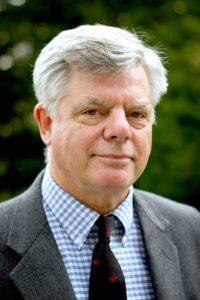
Why Pastors Should Engage Abraham Kuyper
Father Abraham” as he is affectionately known by his admirers had his shortcomings. He was to some extent a man of his era. Thus, his arguments on progress can at times sound Euro-centric and imperialistic, some of his views on South Africa border on racism, and he was occasionally tempted by an irrational kind of pietism, as when he briefly embraced the revivalist spirit of Hannah Whitehall Smith’s messages on holiness in Brighton. More substantively, his radical distinction between belief and unbelief led him to minimize working together with, and doing apologetics against unbelievers.
Yet, Kuyper’s contributions far outweigh his deficiencies. Christian ministers, as well as laypersons, stand to learn a great deal from this towering figure. This is the more so in that he lived in particularly challenging times. The spirit of the Enlightenment had given rise to certain good things, such as the lessening of church power over institutions outside of itself, and the rise of modern science. But along with that came rampant industrialization and a secular ideology which would eventually empty the churches and marginalize the Christian faith from public life. As we shall see, Kuyper’s emphases met these challenges head-on, even though in the end he himself did not feel he had fully succeeded.
Conversion and Cosmic Conflict
Abraham Kuyper (1837-1920) was born during the height of Het Réveil, the great Dutch awakening, which combined a repudiation of Enlightenment rationalism with an extraordinary concern for the poor and destitute. Kuyper was rather dramatically converted. The story is poignant. His fiancée Joanna Schaay was studying in Great Britain and sent him a novel by the popular sentimental writer Charlotte Yonge, titled The Heir of Redclyffe. One of the protagonists, Philip de Morville, was a proud and ambitious man. He manipulated people to get ahead. Kuyper, though a pastor, identified with him. But Philip became quite ill in Italy. He was saved by his cousin Guy, one of Philip’s victims. Guy contracted the disease and died from it. At this point, Philip became deeply remorseful and recognized Guy’s noble heart. At the burial Philip, who had been skeptical about all church ritual, fell to his knees and prayed. Kuyper was stricken: “…from that moment on I despised what I used to admire and sought what I had dared to despise.”[1]
Pastors need first and foremost to be converted! There is little point in exercising a ministry to God’s sheep if the shepherd is not regenerate. Not only was Kuyper himself born from above but he would later divide all of humanity into two large camps, the regenerate and the unregenerate. Here we must introduce a concept for which he is well-known: worldview thinking. The immediate origins of worldview can be traced to the philosopher Immanuel Kant (1724-1804). For Kant and later the German Romantics, worldview was a way to classify religions around the world. Kuyper adopted it for Christian purposes. In his Lectures on Calvinism delivered at Princeton in 1898, he boldly stated that the Christian faith was not a series of piecemeal doctrines, but a “life-system.” The Christian faith is opposed to the encroachments of “modernism” which has its own coherency.
Kuyper reminds us of what the Scripture teaches. There is a cosmic conflict between the forces of good and the forces of evil ever since the fall (Genesis 3:15). We cannot always identify the carriers of that good and that evil, since the wheat and the weeds grow up together until the last day (Matthew 13:34). Yet, humanity is still headed in one of two directions, and this must have some effect on history. And it should affect the way we go about our work. And also the institutions we build. Pastors need to think with the same broad strokes.
Kuyper’s Outreach
Kuyper thus thought there were a Christian way and an unbelieving way to conduct research, and to understand the world. He wrote voluminously. He directed a Christian newspaper which focused on world events through the lens of the gospel. He was strangely (to me) reticent about doing apologetics, which he thought was undignified. Yet, in his work, he does apologetics abundantly. Perhaps here his sense of the antithesis is set forth at the expense of the point of contact and other kinds of bridge-building. Still, it is crucial not to give up on the distinction between the saved and the unsaved in this world. In the present circumstances they do carry-out two separate purposes, though we cannot always properly distinguish them.
As David Naugle summarizes it:
Regenerate people with a Christian worldview produce a roughly theistic interpretation of science, and non-regenerate people with a non-Christian worldview produce an idolatrous science. While Kuyper carefully nuances his position to avoid absurd conclusions, nevertheless he is clear that the experience of palingenesis [spiritual regeneration], which radically alters the content of human consciousness and reshapes worldview, makes a decisive difference in the way the cosmos is interpreted and science is pursued.[2]
Church, Education, Politics
Three realms where Kuyper’s burdens ought to challenge the contemporary pastor are the church, education, and politics. Kuyper began his career as a churchman, and although he eventually spent the bulk of his time in public life, he would remain a churchman till the end. Like Calvin, he could call the church “our mother.” He believed the church to be nothing less than the presence of Christ until kingdom come. Unlike the great Reformers, he believed the church should be a spiritual brotherhood with no ties to the state. He did, of course, believe the church ought to do works of righteousness in the world. In his zeal for the purity of the church, he helped lead a movement separating from the larger state church.[3]
Education and politics are not coterminous, but they went together in Kuyper’s view. Kuyper was convinced that the school and the university were the powerful answers to modern challenges. He founded the Free University of Amsterdam in 1880, an academy based on the Lordship of Christ in every discipline. This had political as well as scientific implications. In his Inaugural Address he developed the theory of “sphere sovereignty”.[4] More poetic than scientific, the theory argues that every sector of life, family, church, school, state, etc., should answer directly to Christ as Lord. Among other implications, this means the church should neither regulate the state nor be regulated by the state. While there is only one Lord, there are many different norms regulating each sphere. Kuyper went so far as to help create a political party; based on principles opposite those of the French Revolution (thus call the Antirevolutionary Party). He eventually successfully ran for Prime Minister from this party.
Cultural Criticism
Kuyper was a cultural critic. He read widely, and was particularly interested in history. This ought to be a sine qua non for contemporary pastors. And although we live in confusing times, through an understanding of history we can still espouse two guiding principles from Kuyper’s vision: there is progress, and the world is deeply fallen. These may appear contradictory, but think about the blessings of modern health care, but also the curse of slavery and other modern cruelties. Kuyper was keenly interested in the arts. Here, it may surprise us to see he both recognized the deficiencies in Calvinism’s relation to art and music, but also its indirect benefits. While the arts were mostly banished from worship, they flourished outside of the church, for example in the amazing landscapes of the Golden Age.
All in all, without slavishly imitating Kuyper, we may nevertheless emulate his spirit. Everything that matters should be seen as spiritual. Each sphere of life belongs to Jesus Christ. Click To Tweet Politics, the arts, all are accountable to Him. Education is a crucial means for influence on society. Proper pluralism is a viable model for social organization. Kuyper, more than anything else, was a theologian, in the broadest sense. Everything begins with God’s Word, and we only have access to that Word when we are in communion with its Author. Let me close with one of my favorite quotes from “Father Abraham”:
Theology has flourished only at times when theologians have continued in prayer and, in prayer, have sought the communion of the Holy Spirit. And, on the other hand, theology loses its leaf and begins its winter sleep when ambition for learning silences prayer in the breast of theologians.[5]
Endnotes
[1] Quoted in James D. Bratt, Abraham Kuyper: Modern Calvinist, Christian Democrat (Grand Rapids; Eerdmans, 2013), 39. Bratt’s is easily the best biography of Abraham Kuyper in recent times.
[2] David K. Naugle, Worldview: The History of a Concept (Grand rapids: Eerdmans, 2002), 21
[3] See Craig G. Bartholomew, Contours of the Kuyperian Tradition (Downers Grove: IVP Academic, 2017) 177-179.
[4][http://www.reformationalpublishingproject.com/pdf_books/Scanned_Books_PDF/SphereSovereignty_English.pdf]
[5] Abraham Kuyper, Sacred Theology (Lafayette: Sovereign Grace Publishers, 2001) 140.

